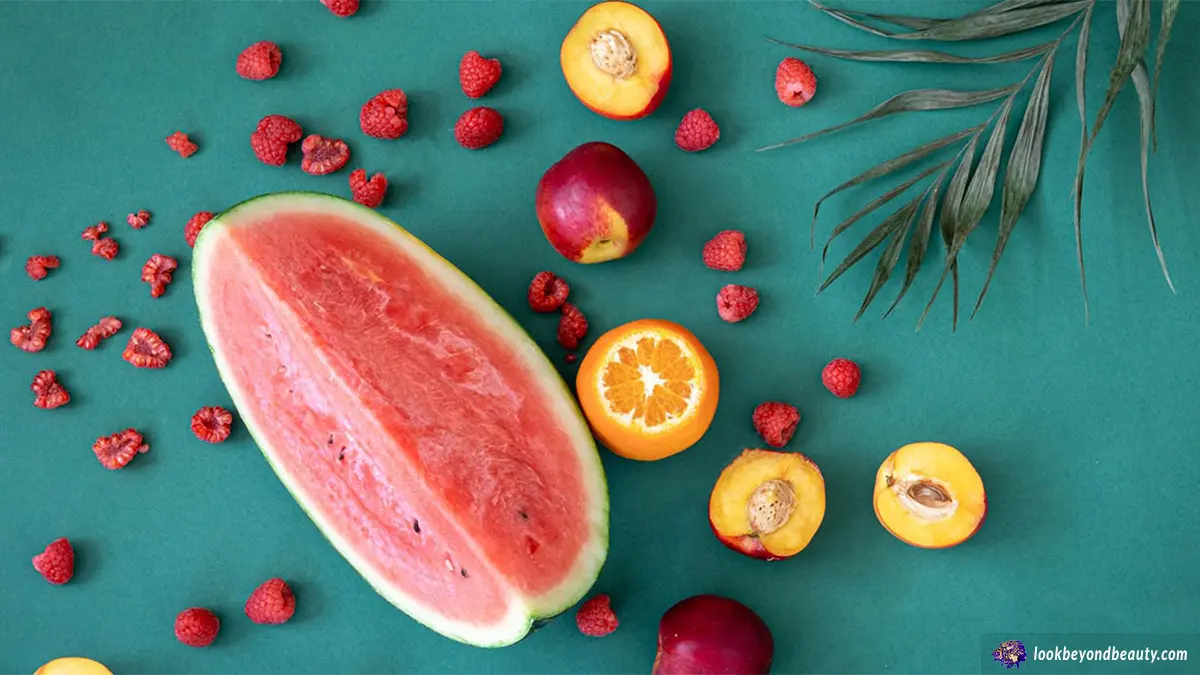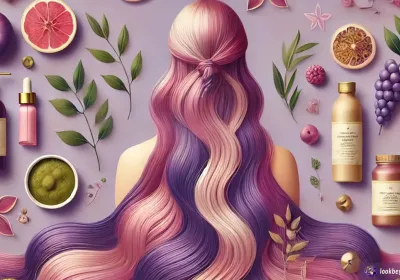Best 6 Fruits for Hair Growth According to Marcey Grant Expert Beauty & Wellness Coach

What you eat is as important to your body as it is for your hair and scalp health. In fact, if you eat unhealthily, gain excess body fat, there will be consequences. Foods like fruits contain nutrients not only taste good, but they are good for you. The best fruits for hair growth and overall hair health are the ones that are rich in antioxidants, vitamins, and other beneficial nutrients.
Eat a Healthy Selection of Fruit Daily
The recommended daily intake of fruit is at least 5 servings. Incorporating nutritious foods into your diet, including fruits, help supply your body with antioxidants, minerals, and vitamins. But be careful of your fruit choices if you have a medical condition. For instance, some fruits such as mangos, bananas, and watermelon are higher in natural sugars. These particular types of fruit should be eaten in moderation for people with diabetes as they can raise blood sugar quickly.
Glow Inside & Out: The Beauty Detox Smoothie & Juice eBook will set you on your wellness journey toward a balanced scalp, healthier hair and glowing skin.
Best Fruits for Hair Growth
While all fruits are healthy, some should be eaten in moderation or not at all if you have certain medical conditions. Each type of fruit contains nutritional value and has properties that can enhance your body and hair in different ways. For example, fruits rich in fiber like berries, pears, kiwi, figs, and prunes can help induce regularity if you’re experiencing constipation.
Given these points, here are 6 of the best fruits for hair growth.
1. Berries
Berries like strawberries, blueberries, and raspberries are loaded with antioxidants and vitamin C, which helps produce collagen. Collagen strengthens hair strands and prevents breakage. These are some of the best types of fruits for hair growth because they also help protect hair follicles from damage.
2. Papaya
Papayas contain folic acid, vitamin A, and vitamin C, which promote healthy hair by improving scalp health and stimulating hair follicles. Plus, the vitamin A in papayas supports natural hair oil production and can also reduce dandruff and hair thinning.
3. Guava
Guava is rich in vitamin C, with more than four times the amount found in oranges. Vitamin C protects hair follicles and can help prevent hair loss. Plus, its leaves are known to boost hair growth.
4. Apples
Apples are rich in antioxidants and soluble fiber. They support hair growth by nourishing hair roots and improving scalp health. They also boost keratin production, making hair strong and full, and contain vitamin B2, which stimulates hair growth.
5. Avocados
Most people think avocados are vegetables, mainly because they are always found in the vegetable section at grocery stores. However, avocados are botanically fruit. This fruit is packed with healthy fats, vitamin C and E, and biotin that nourishes the scalp and supports thicker hair. These nutrients are also crucial for strengthening hair follicles, moisturizing the scalp, and overall hair health.
6. Oranges
Citrus fruits like oranges are excellent sources of vitamin C. They improve blood circulation to the scalp and aid in iron absorption, both crucial for hair growth. They are also essential for collagen production, a protein that strengthens hair and prevents breakage.
Conclusion
Incorporating these best fruits for hair growth into your daily diet can help you achieve stronger, healthier hair naturally. But don’t forget to include proper hydration as well as overall balanced nutrition.
To Good Health,
Marcey, Certified Health Coach & Trichologist
DISCLAIMER: The content in this blog is for informational purposes only. And not intended to diagnose, treat, cure, or prevent any medical condition or replace your healthcare professional’s advice and guidance. If you suspect a medical condition, please seek medical attention immediately.
You may also enjoy reading: How Does Food Repair Your Body?





